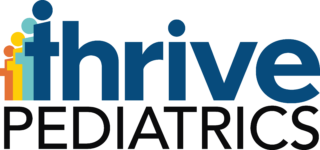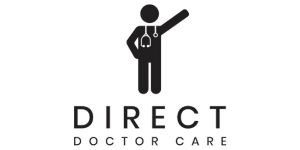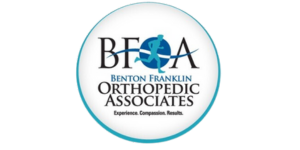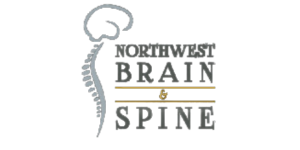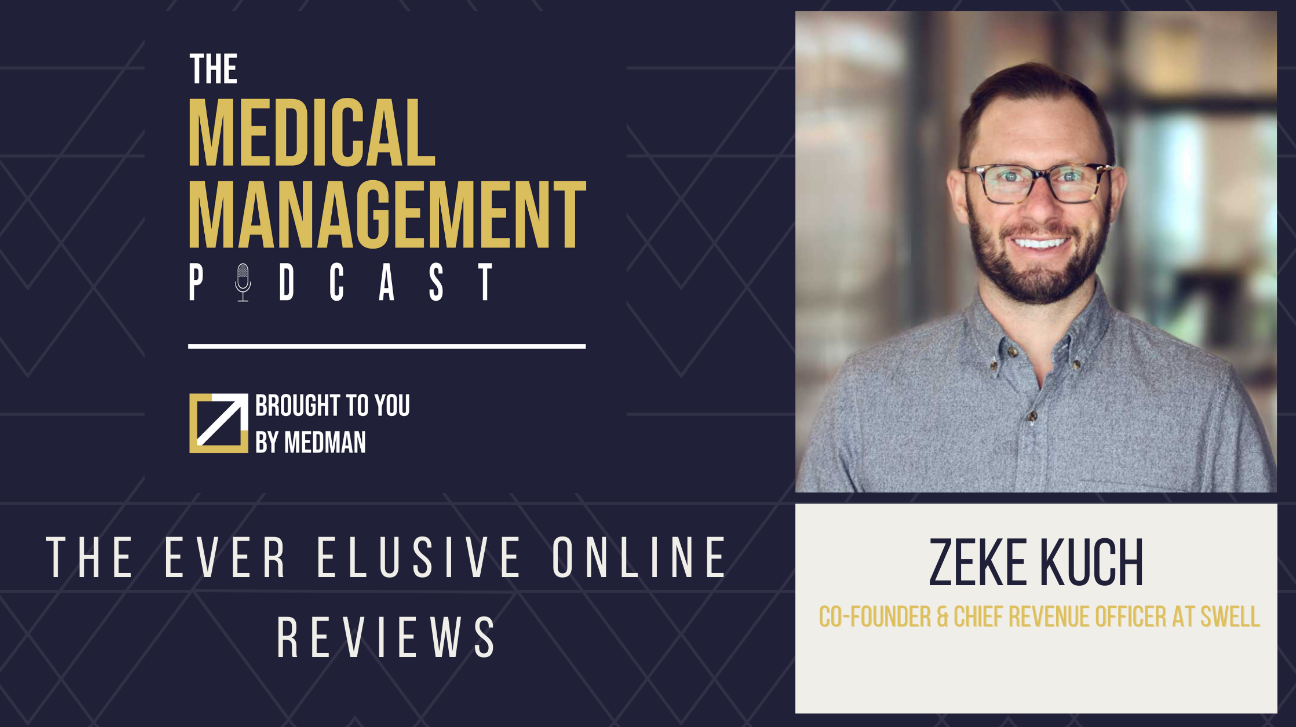
The Medical Management Podcast_The Ever Elusive Online Review: Audio automatically transcribed by Sonix
The Medical Management Podcast_The Ever Elusive Online Review: this mp3 audio file was automatically transcribed by Sonix with the best speech-to-text algorithms. This transcript may contain errors.
Jay Holmes:
Welcome to the Medical Management Podcast. A podcast focused on helping you level up your practice. Through interviews with some of the most successful leaders in the industry, we help uncover resources, tools, and ideas to help you level up your practice. Thanks for tuning in and we hope you enjoy today's program.
Jesse Arnoldson:
Hello and welcome to the Medical Management Podcast. I'm your host, Jesse Arnoldson. Today, I'm joined by Zeke Kuch, one of the co-founders and chief revenue officer over at Swell. Welcome, Zeke.
Zeke Kuch:
Hey, Jesse. Glad to be here.
Jesse Arnoldson:
Yeah, I know. We're so excited to have you here. It's been a couple of months in the making as we were trying to work out a couple of things. But I'm excited to have you on. I think this is a super beneficial couple of topics that we're going to go through. So for our listeners, Zeke, can you tell me a little bit about Swell and what you guys do?
Zeke Kuch:
Yeah, absolutely. So we are a software company that primarily focuses on helping medical clinics basically better communicate and engage with their patient base and most importantly help them grow their patient base. So we offer tools to help acquire new patients, all the way a point of helping convert traffic from their website or help them engage in what we consider more modern channels like Facebook messaging, Google messaging, text messaging, webchats, and basically bungle that all up into one simple, easy-to-use software. So that's really what our focus is, and as I mentioned, health care is our bread and butter. About 90 percent of our customer base is in the health care space, whether you're a dental practice, an oral surgeon, cosmetic surgeon, all the way up to large hospital systems, we pretty much work with everybody.
Jesse Arnoldson:
I love it. When I was first vetting you guys out, I asked the representative for a couple of references, reference clients I could talk to and I got a variety of them across from dental to bigger clinics and smaller clinics. And it was amazing to see how consistent the service was across the different specialties, different sizes. It definitely helped as we were trying to determine as well as who are going to go with. But, Zeke, tell me a little bit about, your co-founder's name is Drew, right?
Zeke Kuch:
Yeah, yeah. Co-founder Drew Sparks. Yeah.
Jesse Arnoldson:
Drew Sparks. How did you guys come up, where did the idea come up for, to create this company? And just tell me a little bit about the path to startup.
Zeke Kuch:
Yeah, actually, it's a really random story. My background is in software, Drew's background is actually in mechanical engineering. And we lived in the same neighborhood. We had the same breed of dog. We ended up meeting at a park across the street from our houses and we started throwing out some ideas together. The company I was working at was about to go through an exit company, the company he was working out had just got acquired, and we both had this different set of skill sets and experiences, but we both knew that we wanted to go take on some new initiatives. And so we ultimately put our heads together and realized that there is a huge gap when it comes to helping what we consider local businesses, modernize the way they engage with their customers. From the way that they acquire customers, to the way that they even collect payments, we just find that typically, specifically in the health care setting, a lot of health care practice or clinics are still pen and paper, and they're not leveraging modern software, modern technologies to help optimize the business. And so we just thought, hey, let's build something that we think is valuable that can bring basically a ton of value to a practice that has not updated the way that they communicate, has not updated the way they acquire patients, but also doesn't require them to have a Ph.D. in data science to get this implemented. It's really kind of a plug-and-play solution. So we built Swell on the idea that, hey, businesses need to adapt to the way that consumers have changed the way they pick providers or pick businesses. We live in a world where convenience wins. And so if you think about, like all the apps on your phone, Amazon, Netflix, Tinder, whatever it might be, the reality is it's come down to how convenient is it for me to watch a show or find a spouse or order food and have it delivered in two hours like that, that's just the nature of the consumer today. And we think it's the same for patients. Patients want to find the best provider, they want to do it really quickly and easily, and they want to be able to communicate or book an appointment in seconds without having to call, sit on hold and jump through hoops that are kind of a historic way of trying to get in to see their local physician. So that's really what the idea spurred from. And that's why we created Swell.
Jesse Arnoldson:
I love it. I love it. Now, for our listeners, I got the chance to help put in place, well, at one of our clinics and watch, kind of, the progress and I'll talk a little bit more about our experience and our success with it a little bit later, but it was really neat to see all the different ways that you guys or at Swell layout, how to engage your patient from soliciting them to making their experience a little bit more convenient in and out of the clinic. One of the key areas that we focused on was around positive review generation trying to get our patients who tell us that they love us and we feel like we're giving a good experience, but we're just not seeing that when it comes to reviews going out on Google. And we're being told more and more that that's where most of our patients are going to vet us out before they come, so we just had a conflict there, we couldn't generate it, we couldn't, but we absolutely needed it. Can you maybe help us, our audience, understand why it's so hard to actually achieve consistent reviews coming through the door? Why is it so elusive for us?
Zeke Kuch:
Yeah, that's honestly the conversation we have multiple times per day. And the reality is this, Jesse, you go to a restaurant, you sit down, you order your burger, your eat burger, and you leave. If that burger was as good or satisfactory, you probably just say, hey, that was OK, you eat, you leave, you go home and you never think about it again. What you're probably not doing is jumping on Google or Facebook or Yelp and leaving this positive testimonial.
Jesse Arnoldson:
Right.
Zeke Kuch:
So everybody else can see it, right? Because you had a good experience, it's what you expected. The challenges, though, let's say you had a different experience there. You go to that restaurant, you order your burger and the waiter is super slow and the burger has a hair in it or they overcooked it or something like that. Then, you're likely to be pretty upset. You're like, hey, I just spent fifteen dollars for this burger that it was cold when I got it or whatever the challenge was. And you're like, hey, no one should ever eat here, and then you jump online and then you're a keyboard hero, you blast that restaurant.
Jesse Arnoldson:
A keyboard hero.
Zeke Kuch:
And then they never, and then you're just basically one negative review on top of many other negative reviews because those are the people that usually go out of the way to do it, those who didn't have that satisfactory experience. And so the challenge for any business, regardless if they're in health care, medical or retail or whatever might be, is it's really easy to get negative reviews because the people who typically go out of the way to do it are doing so because they have a chip on their shoulder because of an incident. It's really difficult to get those who had a good experience or an experience that was satisfactory to spend 20 seconds, 30 seconds, a minute to go out of the way to leave a review unless you make it as convenient as possible. And so that's where we really step in as we think, like, hey, most patients who go to a clinic, whether that's a dental practice, a plastic surgeon, all the way up to an ophthalmologist or whatever might be, the reality is most of those patients have a good experience, that's why they keep going back to that same provider, but getting them to leave a review is the challenge. We come in and we make it convenient for the practice and now ask for a review by automating that and doing it through primarily text message and making it basically one, easy for them to do it because it's all on a cellphone. And two, we navigate the review process for them, meaning we leverage private APIs that Google's offered us to send that patient directly to Google to lead a review that can be left in 20 seconds or less. And so it's really it's all about convenience. It's how convenient is for someone who had a good experience to now leave that public review on a site that they're familiar with, like Google or HealthGrades or Facebook, and then let them get back to their day because they don't want to spend all day leaving a review or completing a survey. And so that's really where we came in. That's where we started. We started saying, hey, businesses today live and die with online reviews, whether it's buying a product on Amazon or picking a restaurant on Yelp, people look up reviews, they pick the highest-rated and that's what they go with, and that's the same with providers. So we found that that's one of the first areas to help drive more traffic to your door is by standing out on their online reviews, which heavily impact local search on things like Google. And then from there, we offered those additional tools to help convert all that new traffic they are typically getting because you're the best-reviewed or you have the most reviews in your specific market. So it's probably a long answer of saying the challenge with getting positive reviews is that it's not convenient and it's not automated, people aren't going to do it.
Jesse Arnoldson:
And the level of convenience is astounding like, because really I have a computer in my pocket that I could pull out and type of review in and fast, and I could probably, on my own, accomplish it in a matter of minutes. But it's got to be seconds, right, like it's got to be so easy and I can't click more than two times to get into that review or else I trail off. Is that kind of what you guys see? Are you able to see what the data like, how many clicks it takes or how much time it takes before people begin to fall off and they just give up and won't do it?
Zeke Kuch:
Yeah, I mean, the reality is, and good question, the reality is, is like for every click required or every question that they have to go through before they can answer and leave the review, you're going to, a huge cohort of those customers' going to drop off. So every click is basically to drop off between 12 and 20 percent of the potential people who could leave a review. So our whole approach is one click only directly from a text or an email. They'll be routed to whatever review sites the practice wants to send them to and it'll basically route them directly into the feed to leave that public review. And that's the beauty of it, it's one-click directly in the review fee. They leave a review and they're done. Our hope is that under forty-five seconds or less, they've gotten the text, they left a review and they're back reading their People magazine or whatever they were doing prior to the text coming through. And that's the goal for us because we know that it's, convenience in today's world dominates. Everything should be convenient or else you're going to lose. So the data just shows that the less clicks, the less time, the more convenient it is, if it's done via cellphone it's about 7 times more effective than email because people are obsessed with their cellphones and we call it the 18-inch rule. They're always 18 inches away from these little devices called computers in our pocket.
Jesse Arnoldson:
Yeah.
Zeke Kuch:
And so that's just where we've primarily focused on and we found that it's been tremendously successful for practices that are trying to drive more consistent reviews on these public sites.
Jesse Arnoldson:
Very nice. Tell me, as you were familiarizing yourself with your target market, with clinics and dental practices, what were these guys telling you? What were some of the most, I guess, creative ways you'd seen the businesses solicit reviews other than a patient satisfaction survey?
Zeke Kuch:
Yeah, no, I mean, there is there's some, we've seen some wild things over time, some of us are probably not even appropriate to talk about on a public podcast, but we've seen some interesting things. What's funny is that early on we ran into a lot of practices in all sorts of different sub-verticals in health care that would basically reward their customers for leaving public reviews. So movie tickets or enter this drawing, and what's funny is they're like, hey, we don't want to pay two hundred dollars a month for Swell or whatever was at the time because that was really expensive. But then if you add up all the amount of money they're paying for people to leave reviews, it was way more expensive for them to pay for these reviews. They would've been just to implement Swell. And so.
Jesse Arnoldson:
Right.
Zeke Kuch:
That's the funny thing. So you started talking through ROI and how to calculate that. And sadly, there's just not enough practices that understand the concept of ROI and really how to get the most out of the software they spend. But the reality is, is that it was frustrating, right, you're like, hey, you're spending five hundred dollars just in giveaways when you could just plug Swell in, automate it. And guess what? Your team no longer has to ask for reviews anymore, which is the other challenge.
Jesse Arnoldson:
Yeah.
Zeke Kuch:
It's, you're often asking your front desk personnel and maybe it's an office manager, patient care coordinator, somebody like that, to ask a patient to leave a review before they leave the practice. And the challenge there is typically one, the team members, that office manager or patient care coordinator, they hate doing it. It's an awkward.
Jesse Arnoldson:
They really do.
Zeke Kuch:
Exchange of saying, hey, can you pull on your phone and leave us a quick review? And it, you know, they don't like doing it, but the owner or doctor always wants him to do it, and then it just gets awkward. And then it's not a great for the patient either because they're like, hey, I just want to get back to picking up my kids at school or back to work or wherever they're going. And so we've seen a lot of that in the past. And those are the type of experiences or engagements we're trying to replace. We're automating that for these practices specifically. But, yeah, we see a lot of practices that have paid for reviews, we've seen a lot of practices that put like QR code scanners in the front desk, which is not a good experience either. Like the QR codes are pretty much dead prior to covid, covid kind of resurrected them when it comes to menus at restaurants, and eventually, they'll probably go back to being dead again. And so that's not a great experience, and these review sites are smart. Sites like specifically like Google track the IP addresses of where these reviews are coming from. And let's say, for example, you allow me to get on your Wi-Fi, Jesse, you're a provider, and I go to leave you a review on your IP address because you let me get on your guest Wi-Fi and then two hours later, another patient does the same thing, Google does look at where these reviews are coming from. And if they're coming from the same IP address, they'll start blocking and basically deleting those reviews from being posted. So.
Jesse Arnoldson:
Interesting.
Zeke Kuch:
They look at as review manipulation. And so we always train on, hey, if you're going to ask someone to leave a review, make sure they're not on your Wi-Fi, because that will, that will run into issues with sites like Google and Facebook when it comes to posting those reviews online.
Jesse Arnoldson:
I didn't know that. That's brand new information to me, that's really good to know because I've seen a lot of clinics like they have their review iPad at the end of the visit.
Zeke Kuch:
Right. That's another one that was common for a while. And I feel like practices are now savvy enough to start getting away from having those designated iPads or devices that are basically, hey, leave us a review here and then you're logging into your Gmail account or your Facebook account on this device that's not yours, that no one likes to do, by the way. And so that's just not a good, it's not a good patient experience. Why not let them do it on their own device, on their own time when they're not pressured by the front desk to leave that public testimonial? And those are all, in our opinion, the experiences that we're trying to replace, that they're just not, they don't meet the kind of standard of experience that patients should face today in a practice.
Jesse Arnoldson:
Right, right. One experience that we had, Zeke, didnt, everything you've described is, kind of, it described as kind of a natural evolution for a clinic, I think you'll try and do raffles, you'll try and buy reviews, and they almost becomes like the discount, the coupon, like, I won't go eat at this restaurant unless I get a coupon kind of thing. Like, that's a community, that's the behavior you create, unfortunately. But we got to the point after doing all those things where the doctors even started asking for the review and what we got was our doctors finally got brave enough to ask, it's funny because they're absolutely confident in everything else they do, but then asking for a review, it feels like they're selling something and the patients feel like they're being sold to, it's, it's not a good experience. But even worse was they would get the confidence up, they'd ask, they'd get a very excited "yes, yeah, of course, we'll do it." And then they wouldn't and they wouldn't see a review come up and their confidence tanked. And it was so hard for them to see that. So not only did you kind of put a damper on the probably good experience that the patient and the kid had at the doctor's office but for nothing, for actually a negative, you came out of it feeling worse about yourself because your patient just lied to you or possibly lied to you.
Zeke Kuch:
Right.
Jesse Arnoldson:
So, I'm right there with you. All those steps ring true to me, almost every single practice I have ever worked with is, has gone through iterations of those, and so, you know, here in the close, can you give us a little bit a couple of pieces of advice on what works, what doesn't, in how we solicit good feedback over Google?
Zeke Kuch:
Yeah, yeah. Specifically, we're big fans of Google from a review site standpoint, it's really the site that matters the most, has the most weight, the most credibility, it'll continue to be, and it definitely has the most impact on local search results. But our advice typically is this, if you're a provider or you're a team member of a practice, just focus on what you've been paid to do and do a really good job of that and let companies like Swell help drive the other factors there, like the review generation piece. And the reason I say this is that we find that if it goes back to your main point, Jesse, where you said it's easy to get negative reviews but hard to get good ones. And the reality is, is most of the patients that you're seeing or a practice is seeing on a given day are going to have great things to say about their experience. Yes, there's going to be a couple that had a bad experience so they waited too long or they didn't like the outcome of the appointment, which is, it's rarely about actual treatment. We almost always find that negative reviews are related to financing, billing, insurance. Those are the three areas in health care where you see most negative reviews get placed. But the reality is, if the provider does their job if the team members do their job unless a system like Swell do their job when it comes to soliciting reviews. But when it comes to soliciting reviews, there's advantages there that we try to take. And our approach is one, know when is the appropriate time to send a review, and we find that there's times of day that are much more effective than other times of day. So there's definitely windows where we track, hey, is it better to send it right after the appointment or is it better to send around dinnertime when people are not commuting or they're at home or they're not at work. The other aspect is we all get these automated engagements now, whether it's via text message or email, and so we know when something sent to us from, let's say, like a MailChimp or some automated marketing machine, our approach is let us personalize these invites by leveraging the data that's coming from your practice management or EHR system and make it look like a human being is actually sending out these requests for feedback. We think that's a huge differentiator from us and some of the competitors, but we also think it's a much better customer or patient experience when, you know, Jesse has a treatment and later that day gets ask to leave a review and it looks like it actually came from the provider or somebody from the practice. And so where we really try to excel is saying, yes, it's automated, yes, these are all being triggered based on some kind of integration with your EHR system or practice management system, but we can pull the data on what procedure code, what provider you met with, some elements around the appointment specifically, and we can personalize those invites without the practice having to do any of that. So that when Jesse does get that invite, it's personalized based on the type of treatment he had or the provider he met with, and everything looks like it's coming from a human and not, again, an automated system. And that's really where we thrive is it's the automation of personalization.
Jesse Arnoldson:
I love it, say that one more time.
Zeke Kuch:
Yeah. The automation of personal, I'm coining this, the automation of personalization.
Jesse Arnoldson:
I like it, I like it. That's awesome. Well, Zeke, thank you. This has been super helpful and I hope our listeners pull something from it. Zeke, where do we get more information about Swell.
Zeke Kuch:
Yeah, absolutely. This place is our website that is SwellCX. So C as in Charlie, X as in X-ray .com. So SwellCX.com, is a great place. You can schedule calls or demos with our team as well, if you're interested in learning more, my email is Zeke@swellCX.com. You can email me directly and I'll be happy to correspond with any listeners as well.
Jesse Arnoldson:
Perfect. That's fantastic. Just for our listener's sake, my experience was extremely positive, you know, from initial interactions, going through the demo, kind of setting expectations for how to interface with our EHR, and then just the experience since then, we, the clinic that we ended up putting it into, we spent about 18 months trying to get as many reviews as possible and we didn't, we got to about ninety-five-ish and then within a month of having Swell we had gained another forty. And so just the pace of bringing them in and the consistency has been a really positive experience for us. And so definitely, our podcast isn't meant to pitch anything, but if I can put out a good word for Swell, this is a good place to do it. So, Zeke, thank you for being on and excited to talk to you in the next episode.
Zeke Kuch:
Absolutely. Thanks, Jesse. Thanks for having me.
Jesse Arnoldson:
All right. And for our listeners, for any information on MedMan or Swell, check out our show notes and we will see you on the next episode.
Jay Holmes:
Thanks for tuning in to the Medical Management Podcast. We hope you enjoyed today's featured guest. For the show notes, transcripts, resources, and everything else MedMan does to help you level up, be sure to visit us at MedMan.com.
Sonix is the world’s most advanced automated transcription, translation, and subtitling platform. Fast, accurate, and affordable.
Automatically convert your mp3 files to text (txt file), Microsoft Word (docx file), and SubRip Subtitle (srt file) in minutes.
Sonix has many features that you'd love including collaboration tools, transcribe multiple languages, powerful integrations and APIs, advanced search, and easily transcribe your Zoom meetings. Try Sonix for free today.
Episode Summary
Today’s guest is Zeke Kuch from Swell, a software company that helps clinics and medical centers better communicate and engage with their patients.
We brought Zeke over on the show to discuss online review generation and the challenge it presents. Most customers go online and either look for or generate reviews about services. This plays an important role in the decision-making process, and businesses nowadays live and die with online reviews. If leaving a review isn’t convenient or automated, customers probably won’t leave them.
There are ways to ask for reviews, and the easier to do for the user, the more you’ll probably get.
Today’s Guest – Zeke Kuch
Zeke Kuch is the Co-Founder and President of Swell, a growth platform for local businesses.
Zeke grew up in Southern California and now resides in Salt Lake City, where Swell Headquarters reside. Zeke is married to his wife Rachel, whom he met at a Dodgers game 9 years ago, and has a 3-year-old son and 4-month-old daughter. He also has a 3-year-old Australian Shepherd named Banjo. He has an extensive background in Software Sales and Growth Strategy.
Key Take-Aways
-
Usually, most reviews are negative because good experiences are expected.
-
Getting positive reviews is a challenge in any business and industry.
-
Going back to the same practitioner or business is an indicator that customers have a good experience.
-
People usually have their cellphone 18 inches away from them.
-
Google is the platform with the most credibility and most weight.

